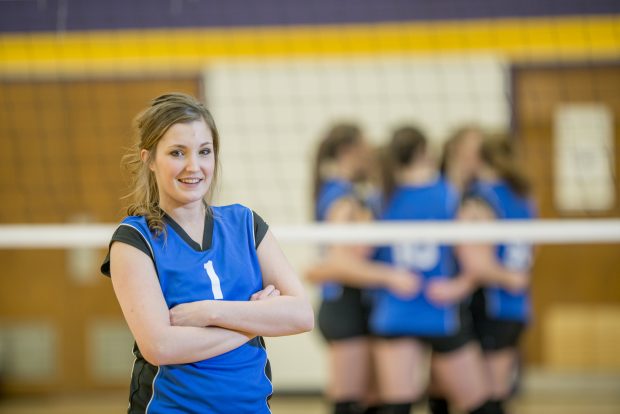
Today’s news review examines coverage of the Girlguiding Girls’ Attitude Survey and figures published by the BBC on school exclusions.
Body image
On Tuesday, 4 October, the Girlguiding Girls’ Attitudes Survey suggested that girls’ overall happiness and body confidence is dropping.
The survey, which is in its eighth year, was picked up widely in the media. It was reported by BBC Online, ITV, the Daily Mail, the Huffington Post and Sky News.
Coverage of the survey, which canvassed opinion from more than 1,600 girls and young women between 7-21, largely concentrated on the finding that girls were struggling with body confidence more than they were in 2011.
While Girlguiding did not call on the Government for action, it is important to point out that we have been putting measures in place to help develop young people’s resilience for some time.
We believe strongly that no girl should be held back due to gender, and we support schools to discuss body image with their pupils.
We have had a work programme on body image for five years. This has worked with industry partners to support the development and adoption of good practice, and helped develop young people's resilience and media literacy through the provision of resources for schools and parents.
Additionally, the PSHE programme of study, produced by the PSHE Association, includes teaching young people to understand the influence that media images and social media can have on self-esteem, emotional health and body image.
Last month we also announced £1.6million over the next two years for four projects to help tackle bullying in schools, including a new project led by Internet Matters to support the use of an online app that lets children report cyberbullying to their school using screenshots of social media.
A Government spokesperson said:
No girl should be held back in life just because of her gender. Body image can be a distressing issue and that’s why we are supporting schools to discuss this with their pupils, so they can learn to respect themselves and others.
Alongside this we’ve recently launched an app that provides 24 hour support to young people who are victims of online bullying and are investing £1.4 billion in improving mental health services for young people.
Exclusions
On Tuesday, 4 October, the BBC published figures on school exclusions and claimed that the number of exclusions had increased dramatically over the past few years.
The figures were covered by BBC Online and BBC2’s Victoria Derbyshire programme, which ran an interview of a family whose son had been excluded.
The BBC’s top line was that there has been a 300% increase in exclusions in some parts of the country, but it is not made clear in the article that these are fixed-term and not permanent exclusions, which are much rarer. It is also not made clear until further in the piece that this figure refers to only to Barnsley and Middlesborough. The percentage increase of fixed term exclusions is much smaller in other parts of the country.
A Department for Education spokesperson said:
Every child should be able to learn without disruption – that’s why we’ve given head teachers more powers to tackle poor behaviour. Permanent exclusion is still very rare and should only be used as a last resort.
We have also announced plans to make schools responsible for securing alternative provision for excluded pupils.
Find out more about the anti-bullying app and resources for teachers and parents on body image.